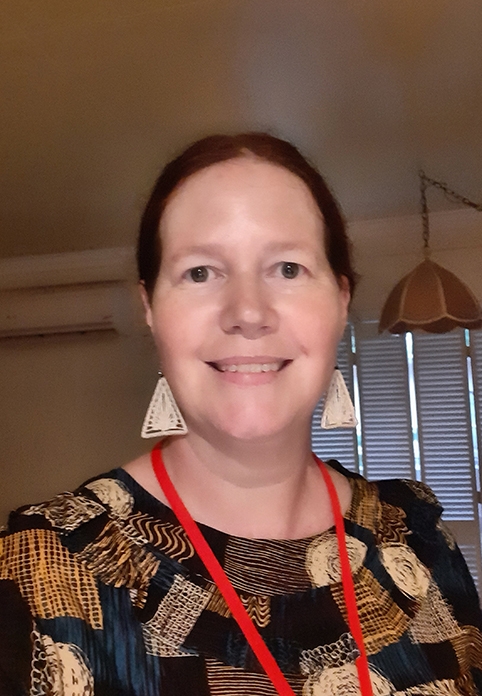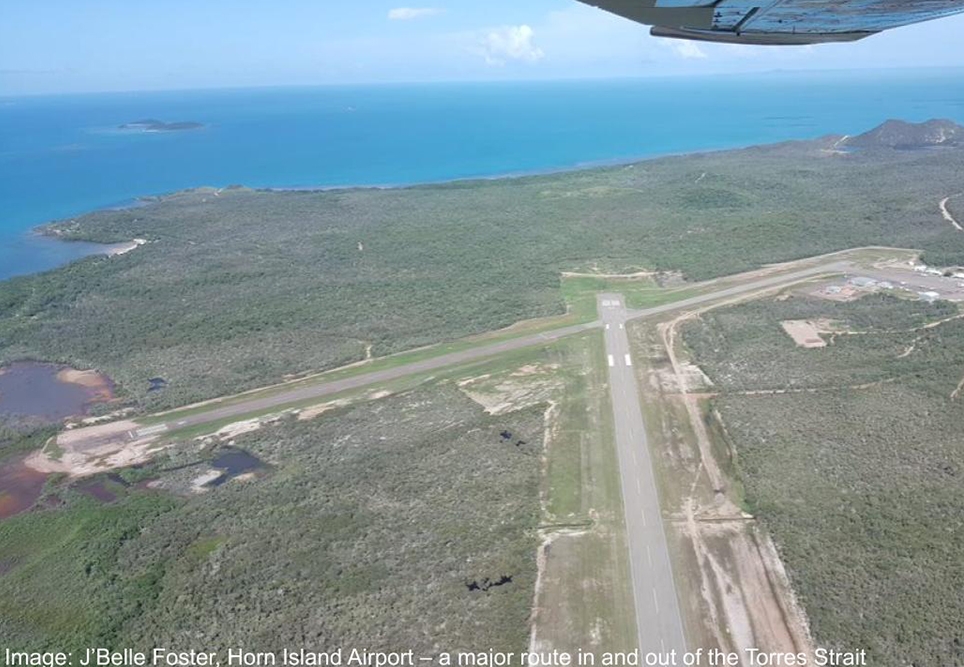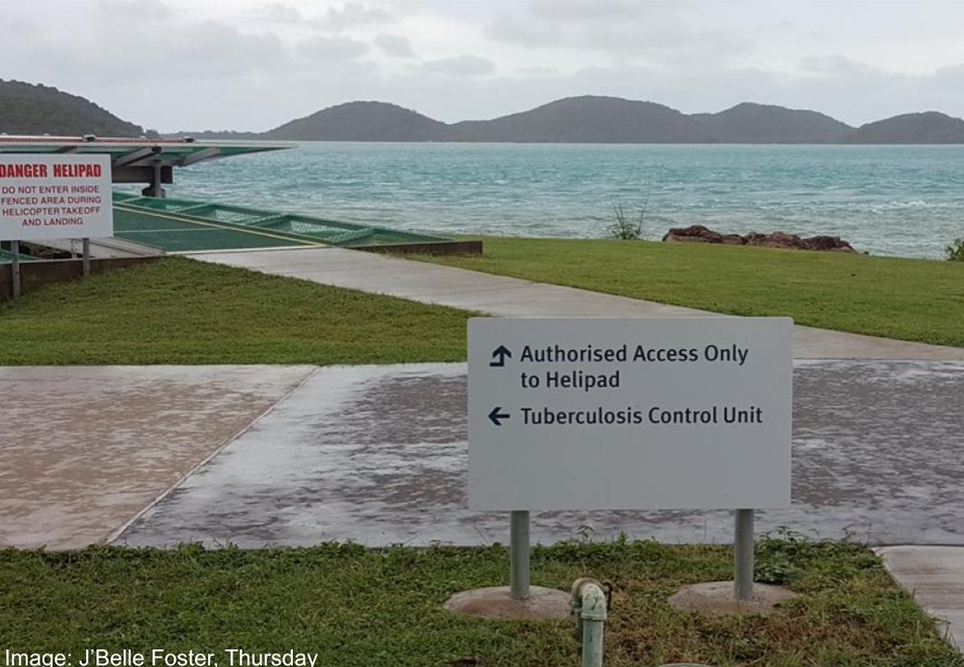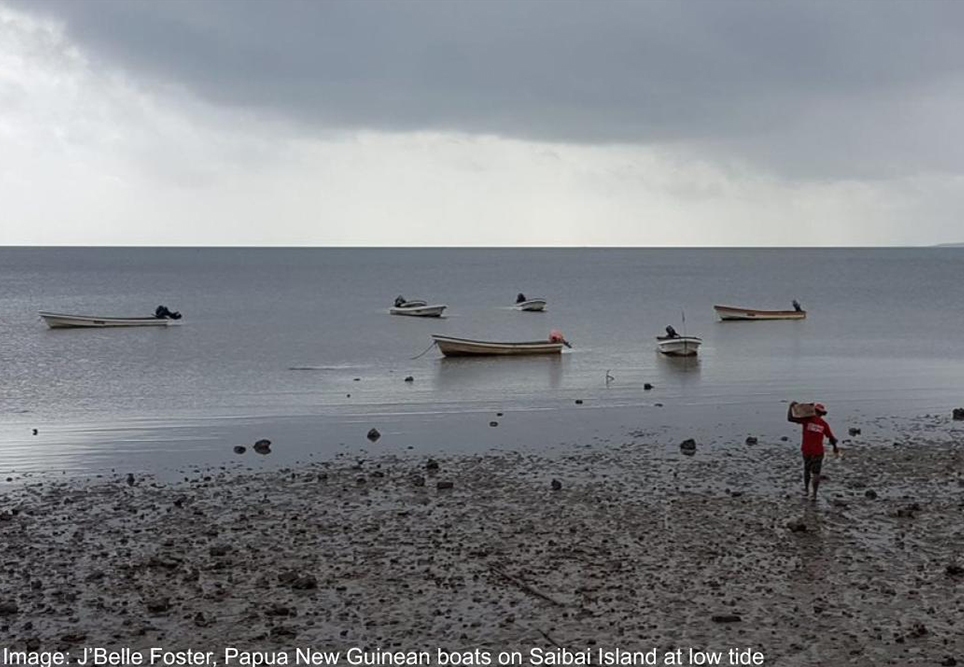This site may not work properly using older versions of Edge and Internet Explorer. You should upgrade your browser to the latest Chrome, Firefox, Edge, Safari, or any other modern browser of your choice. Click here for more information.
Your Stories
This is where we tell your stories, cover topical issues and promote meaningful initiatives.
The power of translational research
Registered Nurse and PhD scholar J’Belle Foster, who has spent years working and researching TB in high-risk areas overseas and on Australia’s border with Papua New Guinea, has been recognised with the 2024 CRANAplus Excellence in Education and/or Research Award. J’Belle exemplifies the CRANAplus values of integrity, social justice, accountability, excellence and respect and here she talks about the achievements gained from her work – and the hopes she has that her research will continue to translate into action.
When J’Belle began her PhD research she never anticipated the evidence for improvements she would unearth close to home or the outcomes it has achieved.
Already well established as an expert in tuberculosis (TB) with overseas work in Nepal and Northern India, J’Belle was sent to the Torres Strait, first to work on an Active TB Case Finding project, followed by a federally-funded TB project to ensure the safe and ethical transfer of Papua New Guinea TB patients from the Torres Strait back to the Papua New Guinea health system.
“Living and working in the community I was studying allowed me to understand nuanced social dynamics, like the perceived threats of cross-border TB transmission,” says J’Belle.
“This embedded understanding informed the research and also influenced my clinical practice. Living and working on location made sure the evidence I gathered was translated into actions that were culturally and contextually relevant.”
Her research resulted in tangible changes such as updated TB screening procedures, new training for clinicians, and better collaboration between healthcare services at the Australia – Papua New Guinea border.
Her experience has made her a strong advocate for the benefits gained from research undertaken on the ground, and also for the focus on translational research – translating the academic work into practical action.
However, she points out that there is work still to be done. “My work identified significant policy and practice gaps, such as the inadequacies in current early warning tools for detecting clinical deterioration in TB patients.
“We need mechanisms that are fit-for-purpose, particularly for vulnerable populations like children suffering from TB and malnutrition. I’ve advocated for changes to clinical tools that could save lives by better identifying critical cases.”
Emphasising the benefits of translational research, J’Belle says: “Ultimately, the goal is not only to highlight these issues in academic papers etc, but to ensure they lead to lasting, positive changes in actual health care delivery and governance.”
J’Belle publicly shared her extensive work in the field of TB at the 2023 CRANAplus conference. “The response I received was overwhelmingly positive and supportive, which was incredibly validating and inspiring,” she says.
“One of the central themes of my research is the call for nurses and other healthcare professionals to be brave and to advocate fiercely for patient safety. We must challenge practices that have become normalised but that compromise patient welfare, particularly in remote and cross-border settings where patients are vulnerable.
“I want to inspire nurses to resist becoming complacent or feeling powerless in the face of ‘normalised’ systemic issues. We must confront these assumptions and prioritise ethical health care, even when it feels daunting. We must question and speak out when patient safety is at risk, especially when dealing with endemic diseases, where the consequences can be fatal.”
J’Belle says her research raises critical ethical questions about the responsibilities facing clinicians. “How do we balance resource constraints with our duty to provide care that does not discriminate based on nationality or geography, and how are we supported in this incredibly difficult environment?” she asks. “My research aims to keep these moral dilemmas at the forefront of policy discussions.”
J’Belle says: “I am deeply honoured and grateful to have received the CRANAplus award this year, and I extend my heartfelt thanks to all who have supported and believed in the impact of this work, especially those who inspire me in our shared mission to improve health care in remote communities.
“Winning the CRANAplus award is a testament to the impact we can make when we work courageously and collaboratively for the greater good.”
J’Belle says she always knew she wanted to work in low-and-middle-income settings with people who were most underserved. After nursing and research stints in China and Vietnam, she spent some time in the foothills of the Himalayas in Dharamsala, mainly with Tibetan children brought over the border and housed in monasteries and boarding schools.
This is where, she says “I fell in love with working with TB patients. It is a curable disease but also deadly. I wanted to help people deal with the fear and stigma attached to TB, understandable feelings as many have seen their loved ones die.
The nomination that secured the CRANAplus award for J’Belle states in part: J’Belle has made a significant contribution to the field of public health by leading a federally funded TB project across the Torres Strait Islands and Papua New Guinea border. J’Belle identified gaps in TB service delivery, which propelled her to write a business proposal and successfully secure funding to establish Australia’s first TB Control Unit situated within an Indigenous community.
“When I initially established the TB Unit,” says J’Belle, “there were no existing policies or procedures to effectively manage TB control at the Australia- Papua New Guinea border. The primary aim of my PhD was to generate the necessary evidence to support patients and develop a comprehensive TB program in this high-risk region. I could never have anticipated the extent of our successes during the implementation phases of this translational research, outcomes that I have since documented and measured in my research publications.”
Since submitting her PhD thesis, J’Belle has spoken at numerous national and international conferences and forums, including the TB Centre for Research Excellence Symposium and WONCA World Conference in Sydney, and the TB Research Advancement Center Seminar Series at Johns Hopkins University Center for TB Research. She also presented at the National TB Coalition of America, and most recently, was invited by the Australian Respiratory Council and Global TB Center to train nurses and outreach workers on the provision of TB care at the Pacific Islands TB Controllers Association (PITCA) Conference in Pohnpei, Federated States of Micronesia.
She is currently a Research Fellow in the Surveillance and Evaluation Research Program at The Kirby Institute, UNSW Sydney. “I am privileged to be part of an incredible team dedicated to addressing significant healthcare challenges in remote and underserved communities. Our work focuses on rapid point-of-care testing in remote First Nations communities, ensuring timely diagnosis, prevention and treatment of infectious diseases where it is needed most.
“This work isn’t just about generating scientific knowledge, but also about empowering communities and healthcare providers with the tools and information they need to act swiftly and effectively, with cultural safety at the forefront of every decision.
“This kind of work demonstrates impactful career pathways that are available to nurse researchers. Translational research offers opportunities to contribute meaningfully to public health while staying deeply connected to patient care and community engagement.”



